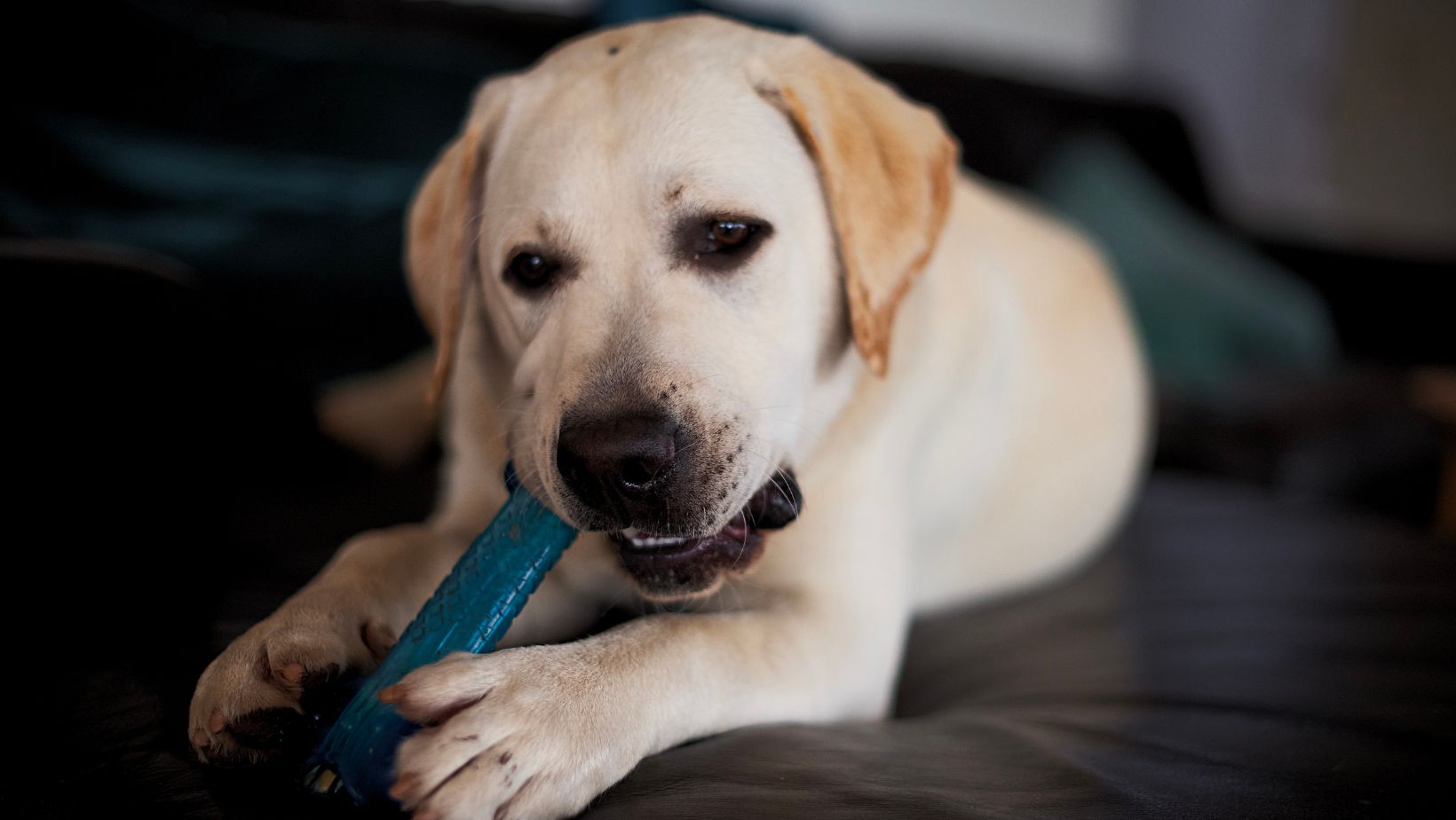How to Get Dog to Stop Biting Hands
If you’re struggling with a Labrador who constantly bites your hands, don’t worry, I’ve got some tips to help you address this behavior. It’s important to understand that biting is a natural instinct for dogs, especially during their puppy stage. However, it’s crucial to train them not to bite our hands in order to avoid any potential harm or discomfort. Here are some effective strategies that can help you teach your Labrador to stop biting hands.
Firstly, it’s essential to provide your Labrador with plenty of appropriate chew toys and redirect their focus onto these toys whenever they try to nip at your hands. By replacing your hand with an acceptable item for chewing, you’re teaching them what is appropriate behaviour.
Redirecting Chewing Behaviour
When it comes to training a dog, redirecting their chewing behaviour is an essential aspect to address. This is particularly important for Labradors, as they are known for their love of exploring the world with their mouths. Here are some effective strategies that can help you get your Labrador to stop biting hands:
- Provide appropriate chew toys: Labradors have a strong desire to chew, so it’s crucial to offer them suitable alternatives. Invest in high-quality chew toys specifically designed for dogs. Look for durable options made from safe materials that can withstand the strong jaws of a Labrador. Introduce these toys and encourage your dog to interact with them by using positive reinforcement techniques such as praise or treats.
- Use taste deterrents: If your Labrador continues to bite hands despite having access to chew toys, you can try using taste deterrents on your skin or clothing. These products have a bitter taste that dogs find unpleasant, which helps deter them from biting or mouthing human hands. Be sure to choose a non-toxic deterrent formulated specifically for dogs and follow the instructions carefully.
- Train with positive reinforcement: Positive reinforcement is an effective method for teaching any desired behavior, including stopping hand biting in Labradors. Whenever your dog refrains from biting hands and instead redirects their attention towards appropriate chew toys, reward them with praise, treats, or playtime. Consistency is key here – be patient and reinforce this behavior consistently over time.
- Teach “leave it” command: Teaching your Labrador the “leave it” command can be invaluable when redirecting their chewing behavior away from hands. Start by holding out a treat in your closed fist and saying “leave it.” When they stop trying to get the treat and instead looks at you or moves away, reward them with praise and another treat from your other hand.
Remember, consistency, patience, and positive reinforcement are key when redirecting chewing behavior in Labradors. With time and effort, you can help your furry friend develop better habits and enjoy a happy, bite-free bond with them.
Avoiding Rough Play with Your Labrador
Labradors are known for their friendly and playful nature, but sometimes that playfulness can escalate into rough behavior, including biting hands. It’s important to address this issue early on to ensure a harmonious relationship between you and your furry friend. In this section, I’ll share some effective strategies to help you avoid rough play with your Labrador.
- Establish Boundaries: Set clear boundaries from the beginning by teaching your Labrador appropriate behavior during playtime. Encourage gentle play and discourage any rough or aggressive behaviors. Use positive reinforcement techniques such as treats and praise when they exhibit calm and controlled play.
- Provide Sufficient Exercise: Labradors have high energy levels and need regular exercise to release pent-up energy. A tired dog is less likely to engage in rough play or biting behavior out of boredom or frustration. Make sure your Labrador gets plenty of physical activities like walks, runs, or engaging them in interactive games like fetch.
- Offer Engaging Toys: Provide a variety of toys that are suitable for chewing and interactive play. This will redirect your Labrador’s attention away from biting hands towards more appropriate outlets for their natural instincts. Look for durable toys specifically designed for strong chewers to prevent them from becoming destructive.
- Teach Bite Inhibition: Labradors have a natural tendency to explore the world with their mouths, which can lead to accidental nips during playtime. It’s crucial to teach them bite inhibition – the ability to control the force of their bites – from an early age. When they nip too hard, let out a high-pitched yelp or say “ouch” in a firm tone to show discomfort, then immediately withdraw attention for a few moments before resuming play.
- Socialize with Other Dogs: Regular socialization with other well-behaved dogs can help teach your Labrador appropriate canine communication skills and acceptable levels of roughness during play. This exposure allows them to learn from their peers and understand the boundaries of acceptable play behavior.
Remember, consistency is key when addressing rough play and hand-biting behavior in Labradors. By following these strategies and providing positive reinforcement, you can help your furry companion develop good manners and ensure enjoyable playtime for both of you. Keep in mind that every dog is unique, so it may take time and patience to see improvements.
